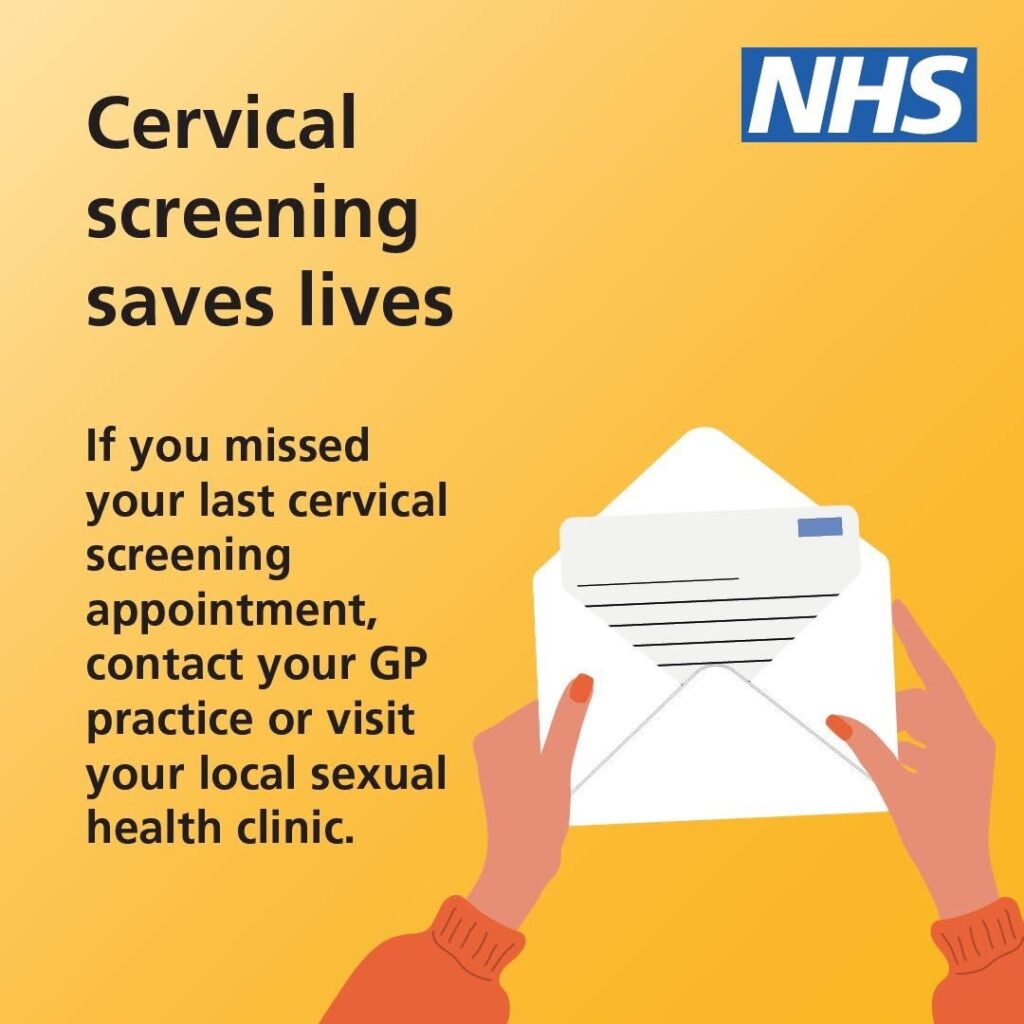💫Cervical Cancer Awareness Month💫
Cervical cancer is a cancer that’s found anywhere in the cervix.
It’s most common in women aged between 3️⃣0️⃣and 3️⃣5️⃣ but it can happen at any age.
Alongside the HPV 💉 vaccine , cervical screening can help prevent cervical cancer by checking for high-risk HPV.
So, it’s important you attend your appointment 📅 when invited ✉️ 💬
ℹ️ For more advice, visit https://www.nhs.uk/conditions/cervical-cancer/

Seasonal Flu
Flu is a highly infectious and very common viral illness that is spread by coughs and sneezes. It is not the same as the common cold. Flu is caused by a different group of viruses and symptoms tend to be more severe and last longer. You can catch flu all year round, but it is especially common in winter, which is why it is also known as ‘seasonal flu’.
Flu causes a sudden high temperature, headache and general aches and pains, tiredness and a sore throat. You can also lose your appetite, feel nauseous and have a cough. If you have flu you generally start to feel ill within a few days of being infected. Symptoms peak after two to three days and you should begin to feel much better after a week or so, although you may feel tired for much longer.
A flu vaccine is available free on the NHS if you:
- Are pregnant
- 65 or older
- Have a serious medical condition
- Are a healthcare worker or carer
- Live in a residential or nursing home
The best way to protect yourselves and others from flu is to get vaccinated. Speak to your GP if you fall in to one of the categories above.
Vitamin D
Vitamin D helps regulate the amount of calcium and phosphate in the body which are needed to keep bones, teeth and muscles healthy. From about late March/early April to the end of September, most people are able to get all the vitamin D they need from sunlight on their skin.
More people are having blood tests to check this level which is often low in a UK winter.
Levels of 50 ng/ml or more are considered adequate for healthy people.
Levels below 30ng/ml may be suitable for short term [12 weeks] medication from your GP.
Levels of 30 -49ng/ml are suitable for patients to self-treat with daylight.
For more information, take a look at this leaflet Vitamin D – NHS
Combined Pill
For more information about taking the combined pill continuously, take a look at this leaflet: Continuous Pill Taking
Diabetes & Driving
If you are on a diabetes medication that requires you to inform the DVLA, it is your responsibility to do this. For more information about safe driving if you have diabetes, take a look at this leaflet.
Change4Life
Would you or your family like to be healthier and happier? Would you like loads of ideas, recipes and games to help you do this? Then you already know why you should join Change4Life. Joining is a brilliant first step to get the most out of Change4Life and their quick assessment will help you discover the right places for you to start making a change.
Visit the website to start making your change
Antibiotic awareness
Antibiotic resistance (when an antibiotic is no longer effective) is a major problem. It is one of the most significant threats to patients’ safety in Europe. Antibiotic resistance is driven by overusing antibiotics and the inappropriate prescribing of them. It’s important that we use antibiotics the right way, to slow down resistance and make sure these life-saving medicines remain effective for us and future generations.
To find out more about responsible use of antibiotics, visit www.nhs.uk/nhsengland/ARC/pages/AboutARC.aspx
Eating Well for Under 5s
Eating well is essential but knowing what advice to follow can be challenging. First Steps Nutrition provide independent information and support for new mum’s and your families.
